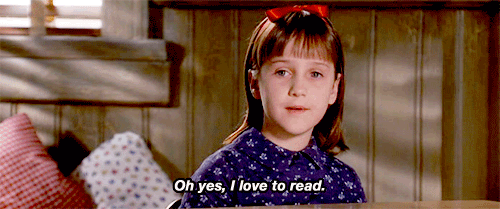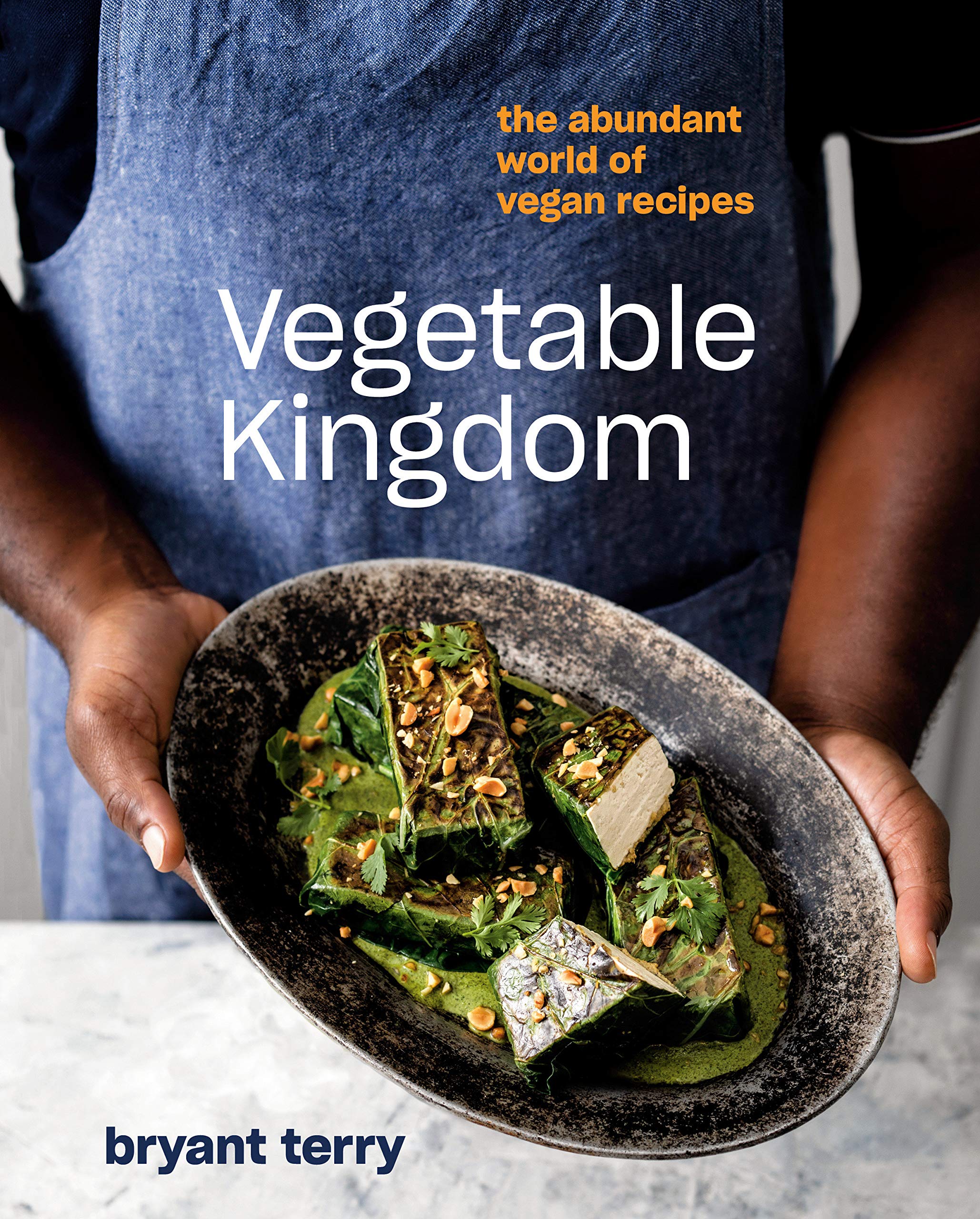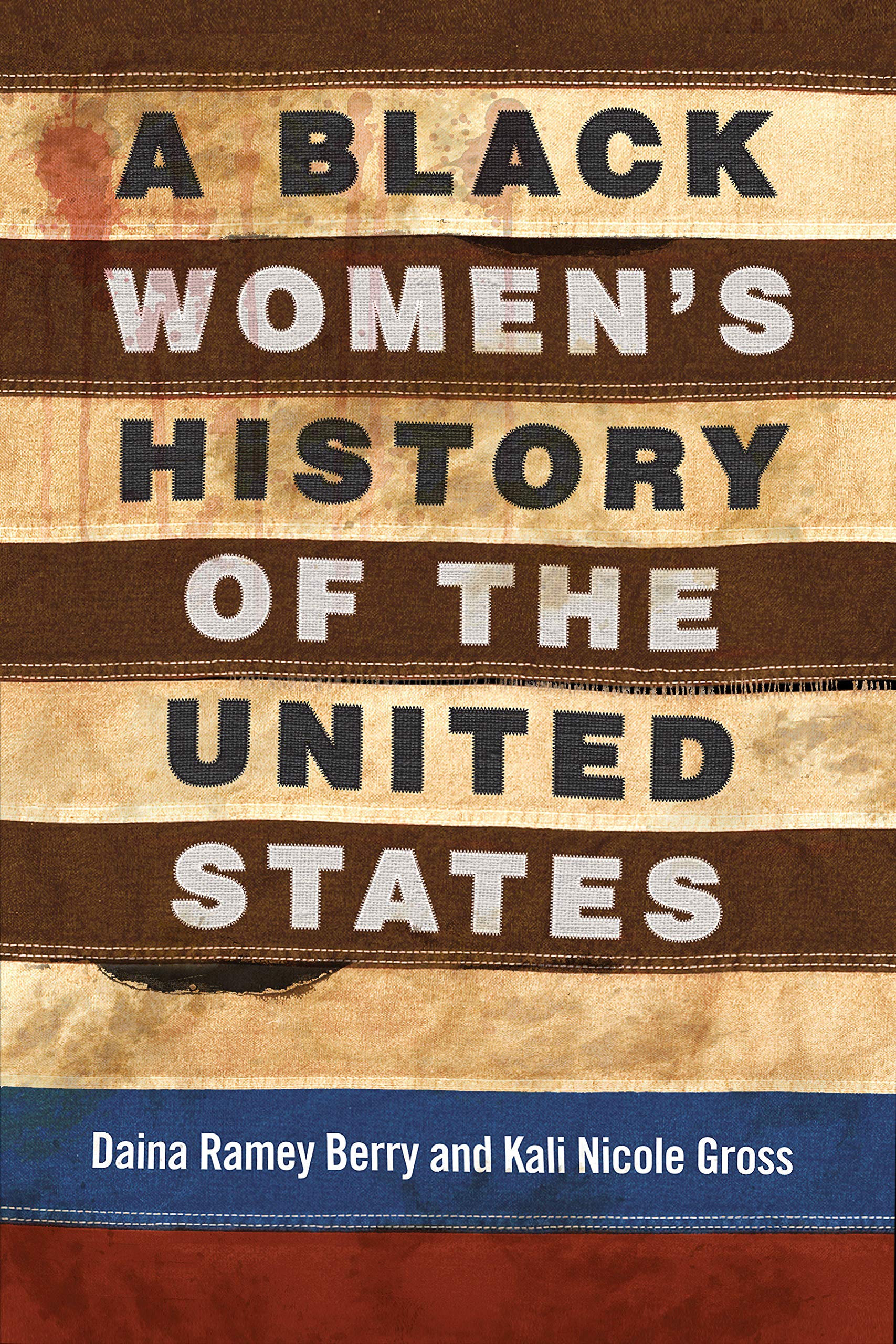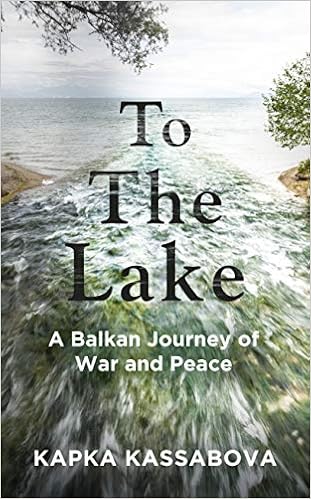My all-time favorite pastime, reading was a little difficult to focus on last year, but thankfully I read a TON of great books that I’m excited to share here. I made an effort to read more fiction in 2020 and this list (I hope) is a reflection of my favorite fiction and non-fiction titles over the past year.
I only included books published in 2020 on this list so friendly reminder to read The Nickel Boys as it truly is one of the great American novels and is an absolutely incredible book. I read it while in Zakopane last fall and I’m still thinking about it.

A bit of personal news before we get into the list; I was hired as a Librarian Technician here in Germany about a month after we moved. It’s been a lot of fun learning information science systems, altering operations to meet host nation guidelines (we are currently in “mega” lockdown but have stayed open to the public), and hosting book clubs. Plus I’m working on media literacy and growing my knowledge of cataloging!

My Favorite Books of 2020:
#20: Crooked Hallelujah
Kelli Jo Ford

#19. Uncanny Valley
Anna Weiner

#18. Being Heumann: An Unrepentant Memoir of a Disability Rights Activist
Judith Heumann, Kristen Joiner

#17: Untamed
Glennon Doyle

#16. Leave the World Behind
Rumaan Alam

#15: Just Us: An American Conversation
Claudia Rankins

#14: Vegetable Kingdom: The Abundant World of Vegan Recipes
Bryant Terry

#13: A Black Women’s History of the United States
Diana Ramey Berry and Kali N. Gross

#12. His Only Wife
Peace Adzo Medie

#11. Fresh From Poland: New Vegetarian Cooking from the Old Country
Michal Korkosz

#10. Start by Believing: Larry Nassar’s Crimes, the Institutions that Enabled Him, and the Brave Women Who Stopped a Monster
John Barr and Dan Murphy

This overview of the Larry Nassar case is one of the best books I’ve read on the topic. Detailing the literal decades of abuse, the enabling, and the eventual arrest, Barr and Murphy do a great (and pretty thorough) job of providing readers with how the former doctor was able (I would argue, allowed) to sexually assault hundreds of women across thirty years at a number of prestigious institutions.
While providing space for survivor testimonies including Rachael Denhollander, Larissa Boyce, and Jamie Dantzscher provides context and narrative to the facts of the case, know that Start by Believing focuses on the trajectory of Nassar and the timeline of his abuse. The Girls (Abigail Pesta) is definitely more victim-focused (and referenced a number of times in this book) but the story of Nassar’s life and the focus on the institutions that enabled him–USA Gymnastics, Michigan State University, Twistars–are detailed throughout this book.
Barr and Murphy provide a fuller picture of Nassar’s life and the effort needed to take him down. I would recommend Start By Believing to anyone looking for an overview of the case and the sheer force and unrelenting willpower required to put him behind bars. These women pursued justice on their own, facing backlash from members of their community and the public, as well as pushback from the institutions supposedly there to assist them.
#9. The Glass Hotel
Emily St. John Mandel

“There are so many ways to haunt a person, or a life.”
This quietly engaging fifth novel by Emily St. John Mandel centers around the fallout from a financial crisis. While that’s the main-ish plot of the story, The Glass Hotel is so much more than a tale of neoliberal shortfalls. Instead, as noted by Beejay Silcox, “the financial crisis as a ghost story” that serves as the backdrop and connection among a number of characters rebuilding their lives.
The financial collapse of 2008 is a different kind of end-of-the-world crisis than we were experiencing in 2020 (and arguably, still living every day) but many of the emotions experienced by the characters struggling to find a new way of life resonated with me. There is truly no “going back to normal”.
I loved this quietly intense and brilliantly written novel.
#8. Transcendent Kingdom
Yaa Gyasi

Homegoing is one of my absolute favorite novels of all time, so I was anxiously awaiting Yaa Gyasi’s follow up to her 2016 debut. The unfolding story of Gifty, a neuroscience student researching the connection between addiction and depression, is similar to Homegoing in that the impacts of the past and family struggle are very much a part of the present. However, unlike her first novel where the family continued to grow outward, Transcendent Kingdom‘s is in fact shrinking; Gifty notes that soon she will be all that’s left.
“I would always have something to prove,” Gifty notes.
And as I followed her story through religion and science, racism, death and living, I too couldn’t wait to see what the young scientist built from her trauma. While she focuses her professional life on potentially assisting addicts, she very clearly states that it is because the work is hard, not out of any kind of desire to help others; that pharmaceutical companies banking off her data won’t save the world, that salvation is more complicated than narrow perspective of Christians and scientists. Gorgeously written, this novel asks a lot of questions, and was one of my favorite of the year.
#7. The Vanishing Half
Brit Bennett

Brit Bennett is an incredible writer. In The Vanishing Half, she tells the story of Black twin sisters–Stella and Desiree–as they make their way through life on opposite trajectories. Desiree, with her dark skinned child, return to her hometown and continues to wonder what became of her sister. Unbeknownst to her and their mother, Stella has lived her life passing as a white woman in Los Angeles.
Centering on the paths of the sisters’ lives, Bennett does a great job weaving a number of storylines over different time periods. For the sisters, who escaped Mallard to New Orleans after the lynching of their father, processing this horrific event frames the lives they chose moving forward. The similarities of experiences regardless of their path demonstrates the very real impacts of race and gender on American life.
#6. Conjure Women
Aida Atakora

This debut novel by Afia Atakora is so addicting and beautifully written that readers feel as if they are almost there with the main characters of the story, A historical fiction tale set both during slavery (centering on Miss May Belle) and after abolition (focusing now on her daughter, Rue), Atakora weaves both plots together to explore the lives of people struggling to survive during and after enslavement.
Atakora’s writing and storytelling skills are impressive and she successfully moves through time at a plantation in the heart of the American rural south. At times magical, at others heartbreaking, I loved this book.
Can we also just talk about how stunning this cover art is?
#5. Caste: The Origins of our Discontents
Isabel Wilkerson

Everyone needs to read The Warmth of Other Suns. Now that I have that off my chest, everyone should also read Caste: The Origins of Our Discontents. Wilkerson’s follow-up to Suns argues that a caste hierarchy is the most accurate way to describe race in the United States. Powerfully written and one of the most necessary non-fiction books of 2020, Caste combines historical narrative and aspects of sociology and culture to formulate her argument: “Race, in the United States, is the visible agent of the unseen force of caste. Caste is the bones, race the skin.” For Wilkerson, the construction of a caste system–artificial in nature that ranks humans based on ancestry–presumes one group of people is higher than another and this idea is further ingrained institutionally, as well as legally codified.
For me, now living in Germany, the chapter detailing how the Nazis based much of the operations of the Final Solution on the treatment of Black people by the American government truly hit home; this was the first book I read after our move. The dehumanization of the “other”–even Adolf Hitler was surprised by the extent of the effort to separate the races–is a reminder of how truly deep racism and the structures built to uphold white supremacy have, and continue to be part of, American life.
In a discussion with a friend, Wilkerson is asked: “if people [Americans] were given the choice between democracy and whiteness, how many would choose whiteness?” (352).
#4. Ana Roš: Sun and Rain
Andrea Petrini and Kaja Sajovic

As I mentioned before, Kobarid–and specifically Hiša Franko–is my new happy place. I was incredibly lucky to order Ana Roš’s magical restaurant cookbook early in self-isolation. Never trained as a chef and inspired by travel and cuisine, Ana took over the role of head chef of her in-laws’ restaurant, much to the chagrin of her parents, who hoped their daughter would become a diplomat. After a time struggling to develop dishes, Ana embraced her Slovenian roots and utilized the unique landscape and bounty of her isolated area near the Italian border.
The result of this incredible work included Slovenia’s first and currently only Michelin star, although for Ana, the journey is much more than the reward. Her focus on hyper local sourcing–less than fifty kilometers when we visited in late August–embraces what makes the Soča River Valley truly unique. Hiša Franko’s popularity has helped with sustainable fishing, farming, and cheese for a number of small producers near Kobarid.
Simiarly to Kassabova’s work (see below), I am thankful to have the opportunity to receive and read Sun and Run at a time of strict lockdown. Gorgeously photographed with beautiful writing (Kaja Sajovic is an absolute talent), I felt as if I was in the Soča Valley. Incredibly, we were able to visit the restaurant literally the final day before the borders between Hungary and Slovenia closed once again. Even if you can’t cook like Ana (who can?), you can enjoy this breathtaking story of her little piece of Eastern Europe.
#3. To the Lake: A Balkan Journey of War and Peace
Kapka Kassabova

Our last year in Hungary was filled to the brim with traveling across eastern countries. I planned an adventure through the Balkans, centering on a long period of time at Lake Ohrid (located between North Macedonia and Albania) for my birthday. Of course with Covid spreading throughout Europe last spring, this trip was canceled–my birthday is in late March when we were already on a strict lockdown–and I was (selfishly) a little heartbroken. Wandering the Balkans was one of my top travel destinations not only because of the beauty of the area, particularly Lake Ohrid itself, but for the sheer amount of cultural and historical sites in the region.
Thankfully, I found To The Lake through The Main Street Trading Company, a locally owned UK-based bookstore, that shipped to Hungary at a time when most independent stores were not. I am so glad I found Kassabova’s work as I truly read this book exactly when I needed to most; funny how things work out that way.
To The Lake details the journey of Bulgarian writer Kapka Kassabova as she travels through Albania, North Macedonia, and Greece, in search of her ancestral home and heritage. A woman after my own heart, she details how human geography affects natural landscapes, borders, and memory: “Geography shapes history – we generally accept this as a fact. But we don’t often explore how families digest big historio-geographies, how these sculpt our inner landscape, and how we as individuals continue to influence the course of history in invisible but significant ways — because the local is inseparable from the global” (6). Beautifully written, this book details Kassabova’s journey through the physical landscapes of her heritage while understanding the human stories of her past embedded in these spaces. A beautiful and engaging book.
#2. Hood Feminism: Notes from the Women that a Movement Forgot
Mikki Kendall

Hood Feminism is a reminder that mainstream American feminism has always centered around white women and has never been inclusive, even to the point of exchanging the rights / well being of Black women for the movement itself. The purpose of Kendall’s work is to outline how the many issues that exist in the United States today affect not only women, but marginalized women especially, and should be seen, deconstructed, and solutions developed through the lens of intersectional feminism. Hunger, education, poverty, housing, and reproductive justice are just a few issues that are often overlooked, but should be seen as under the umbrella of feminism, even as the movement has failed to do so in the past.
In “Of #FastTailedGirls and Freedom” Kendall outlines how Black women and girls have been oversexualized and abused in the past, with these stereotypes of “fast tailed girls” continuing to the present, complete with a lack of moral and legal accountability: “Despite the narrative espoused by lynching advocates, white women were not the ones who were most at risk from sexual violence. Black women were expected to adhere to every aspect of respectability pushed on them by Jim Crow laws as well as by community norms established in the wake of slavery” (52). Hood Feminism truly changed my perspective of how we need to fight social issues.
#1. The Office of Historical Corrections: A Novella and Stories
Danielle Evans

This gorgeous collection of short stories is my favorite book of 2020. Not particularly a fan of fiction or short stories, Evans’ novel completely blew me away and I finished the book in two days. Focusing on issues facing Black people in the United States–particularly classism, historical whitewashing, invisibility, friendship, feminism–I both burst out laughing and internally cringed reading Evans’ work. Her prose is unique, engaging, and has the ability to be downright hilarious and introspective.
“Happily Ever After”, the first story in the book, follows Lyssa, a woman who works in the gift shop of a Titanic museum, and includes my absolute favorite opening line of any book: “When Lyssa was seven, her mother took her to see the movie where the mermaid wants legs, and when it ended Lyssa shook her head and squinted at the prince and said, why would she leave her family for that? which for years contributed to the prevailing belief that she was sentimental or softhearted, when in fact she just knew a bad trade when she saw one. The whole ocean for one man.”
The final story centers around Cassie, a “public historian” who has the responsibility of correcting inaccuracies she sees in various locations (countering “the contemporary crisis of truth”); in a world where a lack of media literacy and rampant disinformation is taking over how Americans ingest and interpret news, this story had me absolutely reeling. It is a stunning final chapter to a collection of stories that I truly love. The Office of Historical Corrections has now been nominated for a number of awards including The Story Prize and the Aspen Words Literary Prize, Read it.
On a more personal note:. If you’re anything like me right now, the 500,000 Covid deaths in the United States hits hard. This. Is. A. Lot. that we are all dealing with and it is completely understandable if you need more time and rest right now. As Lee McKay Doe notes, a symptom of internalized capitalism is “feeling lazy, even when you’re experiencing pain, trauma, or adversity.” These emotions can take a number of forms and I am one hundred percent guilty of attempting to prioritize my productivity over my mental health. This “milestone” or whatever you want to call it, hurts. Friendly reminder to be kind to yourself.
And WEAR A FUCKING MASK. OR TWO.
“Our world is unstoppably connected, yet increasingly self-fragmenting. Some might say ‘Balkanized’… Our tragedy is fragmentation. It begins as a state of mind and ends up as a tragedy” (5, 374). — Kapka Kassabova, To The Lake
Currently:
Reading: Song of Solomon (Toni Morrison)
Watching: Peaky Blinders Season 5 (Netflix)
Listening: The Test Kitchen (Gimlet Media)

Leave a comment